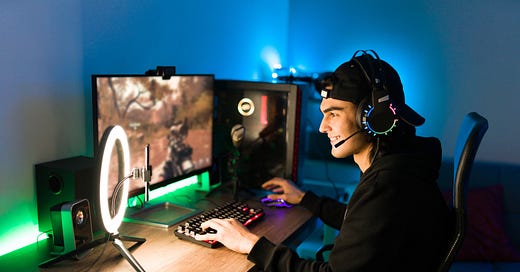Research Hit: Do Violent Video Games Block the Brain's Empathy Response?
Violent video games, in this study, and with this demographic, seem unproblematic.
Violent video games have been accused of turning our teenagers into monsters, right?
Well, yes. And this is not so far-fetched. After all if you are playing killing people it would be logical that this is training your brain for this activity. Particularly in those teenage developmental years as the brain is still growing and developing.
In addition, the argument could also be made that as graphic resolution and processing power has increased, this is making these games much more realistic - again more strongly influencing our brains.
So, it would be logical to think that this is negatively impacting our brains and relevant empathy circuits.
But I don’t see gangs of murderous teenagers roaming the streets?
Precisely. Remember the same thing was said about television and violent movies. But this does not seem to have had a significant impact on violence or empathy levels. If anything we have more empathy and concern for others.
But is this proven?
That is the point - there is some evidence, but also conflicting evidence, and this research I am reporting on today also wanted to give some more solid evidence using brain scanning rather than just observational studies.
Lukas Lengersdorff and Isabella Wagner and colleagues of the University of Vienna collaborated with the Karolinski Institute in Sweden to investigate whether playing violent video games does indeed reduce empathy patterns in the brain.
How did they do that?
Keep reading with a 7-day free trial
Subscribe to leading brains Review to keep reading this post and get 7 days of free access to the full post archives.




